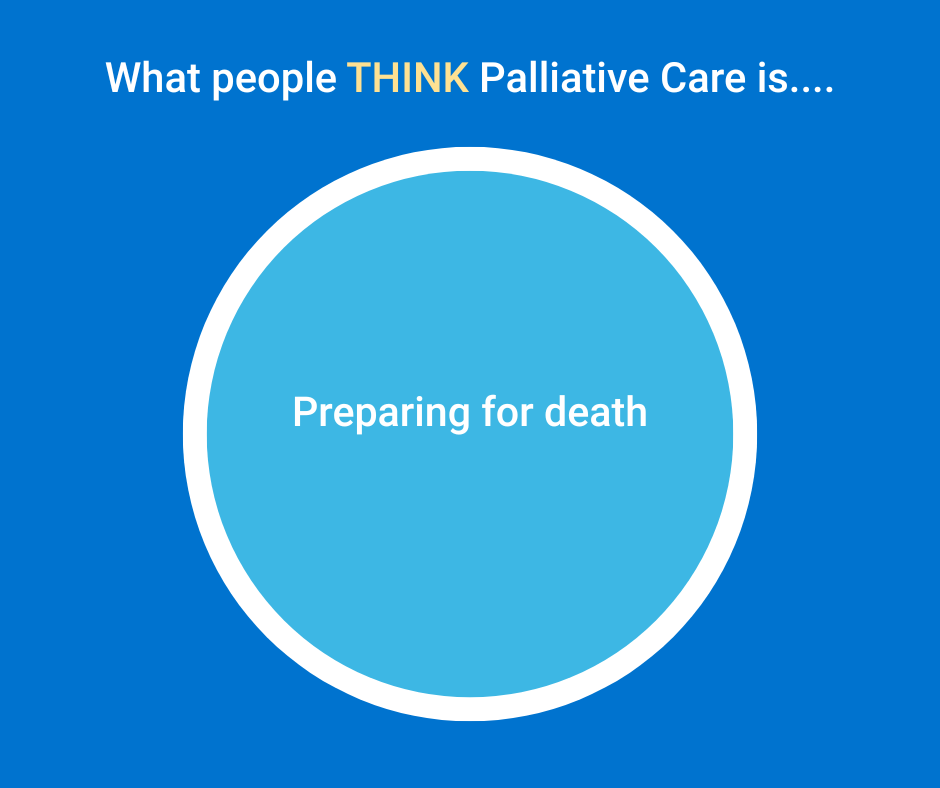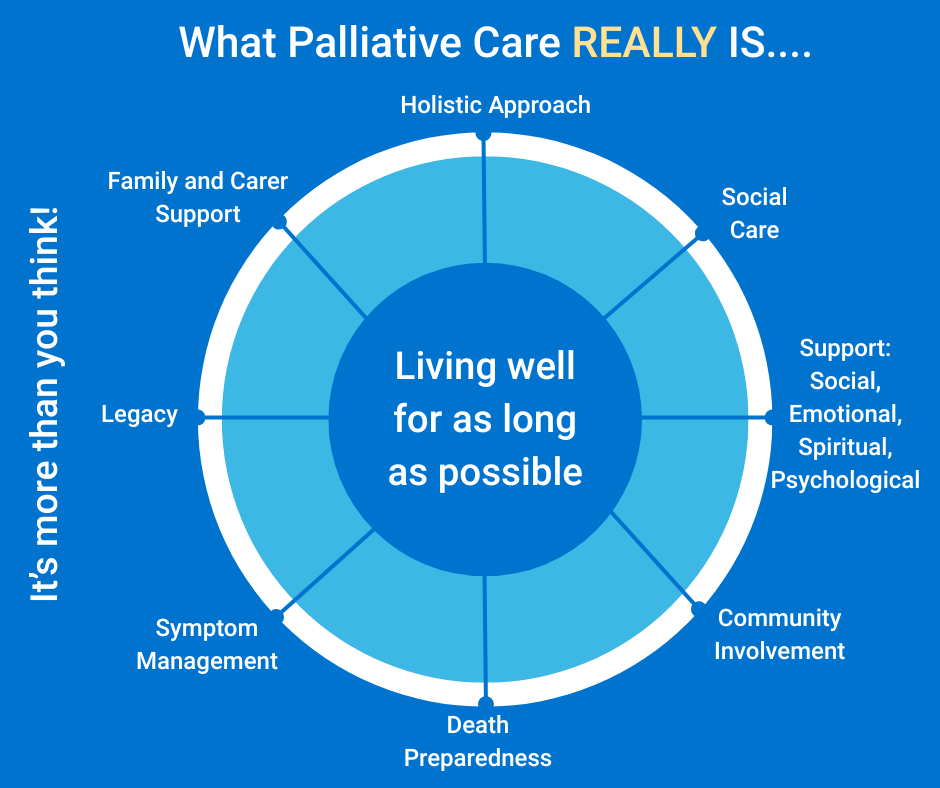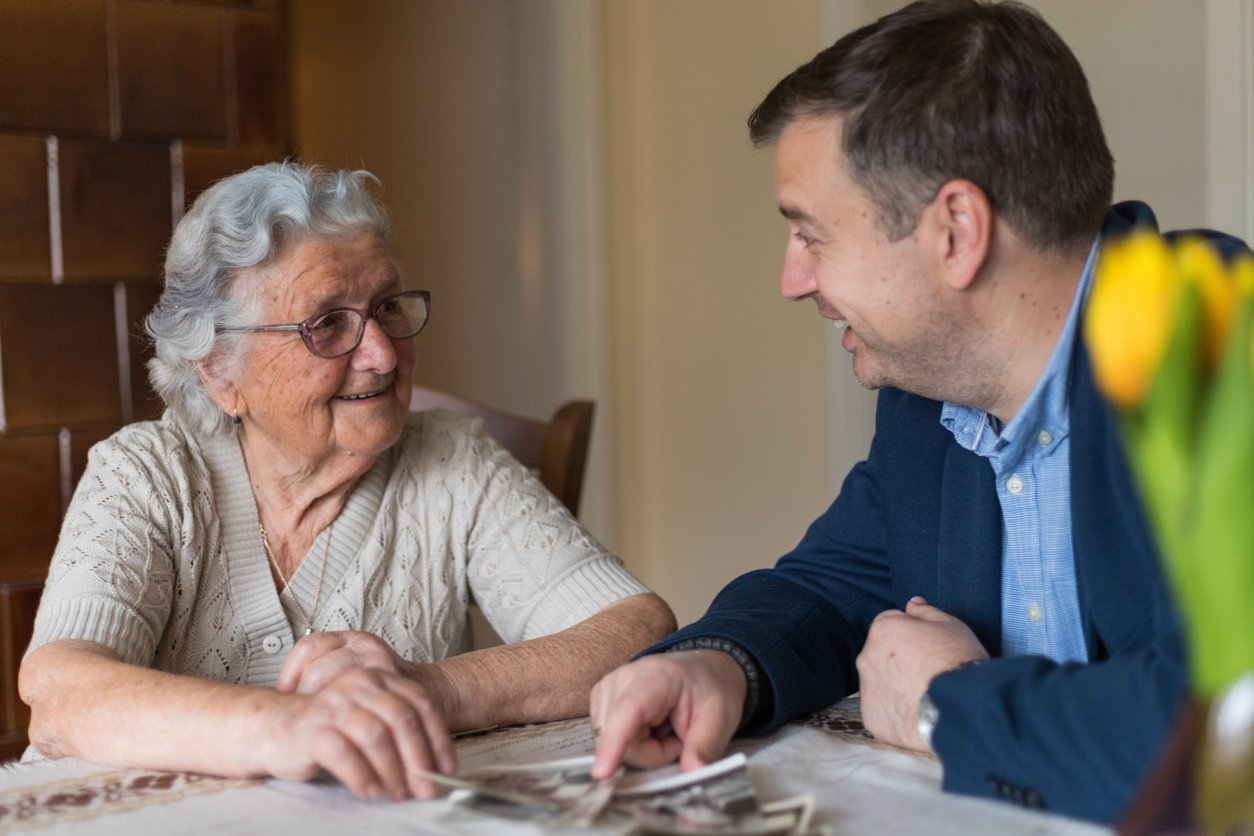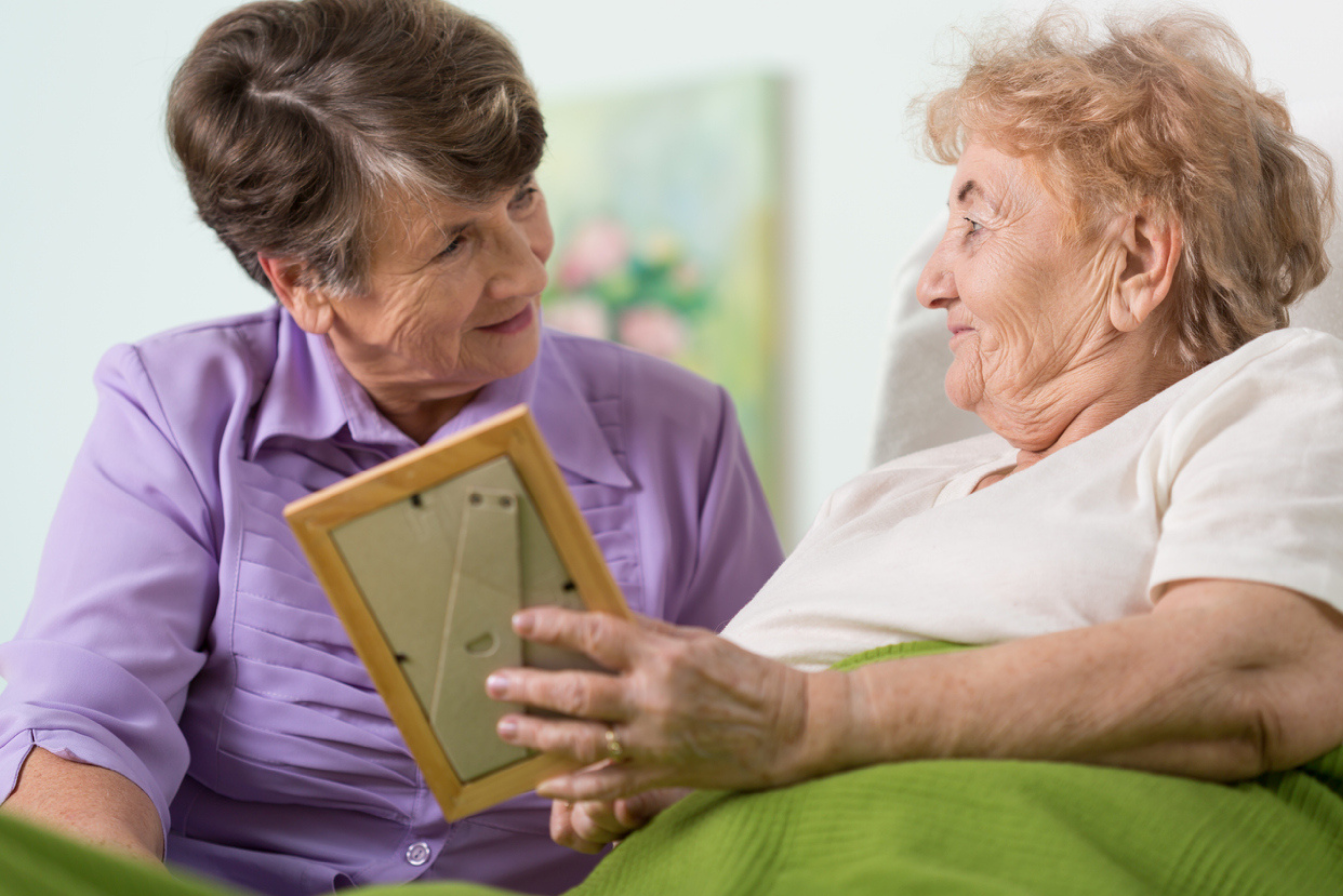Living well for as long as possible
Palliative care focuses on improving quality of life for people living with a life-limiting illness. It’s not just about managing symptoms — it’s about ensuring every person feels supported, heard, and cared for in a way that honours their values, beliefs, and choices.
What people think palliative care is
At Catholic Healthcare, our palliative care services are designed to support carers and the person with a life-limiting illness to live well with dignity, comfort, and meaning — for as long as possible. We focus on expert symptom management, emotional and spiritual support, community involvement, social and compassionate care for residents and their families.


Our approach to palliative care
Affirm
Affirming your plans and making informed choices
Balance
Balancing and reviewing your care as your needs change
Comfort
Providing comfort care and support at the end of your life
Deliver
Ongoing support of your loved one
We’ve developed our approach in collaboration with BaptistCare.
Three ways to access palliative care with us
We offer flexible palliative care options tailored to your circumstances:
Wherever you are, our team is here to walk beside you with compassion and clarity. Our palliative care services are available across NSW, Brisbane and Ipswich (QLD).
Want to learn more about palliative care support?
If you or a loved one would benefit from palliative care, or if you’d simply like to understand more about what’s involved, we’re here to help.
Support for families and loved ones
Palliative care also includes support for families, helping them navigate this emotional time with guidance, practical care, and compassion. We can provide respite care, counselling referrals, pastoral care and bereavement support.
 Your care. Your way.
Your care. Your way.
Advance Care Planning Australia allows you to express your wishes for future medical treatment if you cannot make decisions on your own. You might have strong feelings about avoiding certain treatments for life-limiting conditions, such as tube feeding, mechanical ventilation, intravenous antibiotics, dialysis, or cardiopulmonary resuscitation (CPR).
An advance care plan is a written document that enables you to reflect on your desires and convey them to your family and the healthcare professionals who will be responsible for your care. An Advance Care Directive is a legally binding document outlining your choices for future medical care and treatments.
Frequently Asked Questions
-
What is palliative care versus end-of-life care?
Palliative care
Palliative care helps people live as fully and comfortably as possible with a life-limiting or terminal illness. Palliative care aims to ease the suffering of patients and their families (Australian Government Department of Health and Aged Care, 2025). The philosophy of palliative care views dying as a natural process while sanctifying the importance of living.End-of-life care
End-of-life care is the care given to people and their families who are facing the end of their life. End-of-life care is an important part of palliative care (Australian Government Department of Health and Aged Care, 2025).
End-of-life care is for people of any age. It often involves bringing together a range of health professionals to help you live your life as comfortably as possible.
-
How does palliative care differ from other types of care?
Palliative care is different from end-of-life care. You can receive palliative care at any stage of your illness. You can also continue treatment for your illness while you are taking palliative care.
-
How do I know if I or a loved one needs palliative care?
Palliative care is available for people of all ages who are living with a life-limiting illness. Everyone’s situation is different, and the need for palliative care depends on the person’s unique needs — not just their diagnosis.
Some people may require palliative care in the final days or weeks of life, while others may benefit from support over a longer period, even years.
It’s not just about managing medical symptoms — palliative care supports the whole person and their family, helping with emotional, social, and spiritual needs.
Your GP, healthcare team, or one of our palliative care professionals can help assess what kind of care is most appropriate for your situation.
Importantly, talking about palliative care doesn’t mean that death is near. In fact, early conversations about your goals, wishes and preferences allow everyone — including family and carers — to better support your choices and plan with confidence.
If you’re unsure or would like to speak with someone about what’s right for you, our friendly team is here to help. -
What palliative care support is available at Catholic Healthcare?
Catholic Healthcare adopts a holistic approach to palliative care, honouring everyone’s unique circumstances and deeply held beliefs. We utilise a multidisciplinary approach emphasising both suitable medical treatment and the holistic care of everyone.
Our team includes Registered Nurses (RN), Enrolled Nurses (EN), Care Workers, Pastoral Care Coordinators, Lifestyle Team, General Practitioners (GP), Nurse Practitioners (NP) and various allied health professionals.
For more details on palliative care support, speak with our friendly team on 1800 225 474.
-
How to start a meaningful conversation to discuss end-of-life issues?
Discussing end-of-life issues can be one of the most challenging conversations you will have, yet it can also be one of the most meaningful. Sharing your wishes regarding future care and interventions, including an appointment of a Substitute Decision-Maker (SDM), with your family is the ultimate act of love and trust.
Conversations of this nature invite us to reflect on significant life aspects and allow us to discuss unresolved matters, like financial planning or will preparation. Although these discussions may be challenging, they frequently lead to greater clarity and a sense of peace.
It's best to contact speak with our friendly team for guidance on the process.
-
Is Voluntary Assisted Dying (VAD) part of palliative care?
Catholic Healthcare affirms that VAD is not part of palliative care. If you need information regarding VAD, please don't hesitate to contact your general practitioner or your State Health Department's VAD Care Navigator Service. Management will also provide you with these details if requested. Catholic Healthcare will transfer only if medically necessary, or at resident’s request
Latest news in our residential aged care
Acknowledgement of Country
Catholic Healthcare acknowledges the Traditional Custodians of the lands on which we live, work, and care. We pay our respects to Elders past and present, and honour the enduring connection of Aboriginal and Torres Strait Islander peoples to Country.









